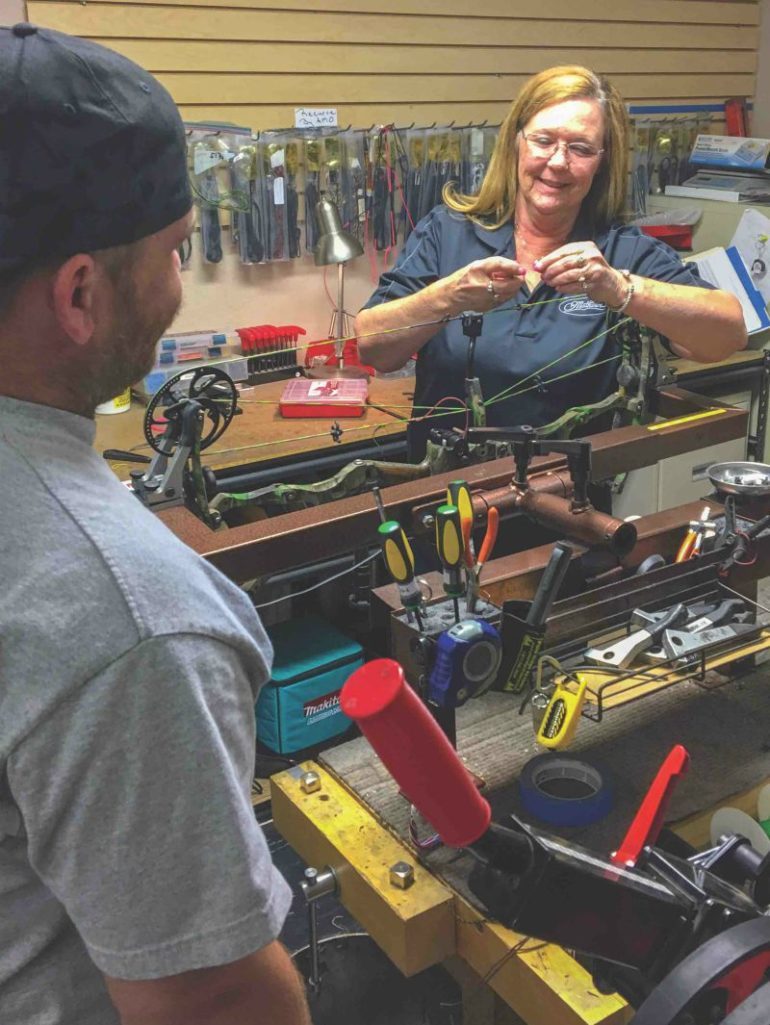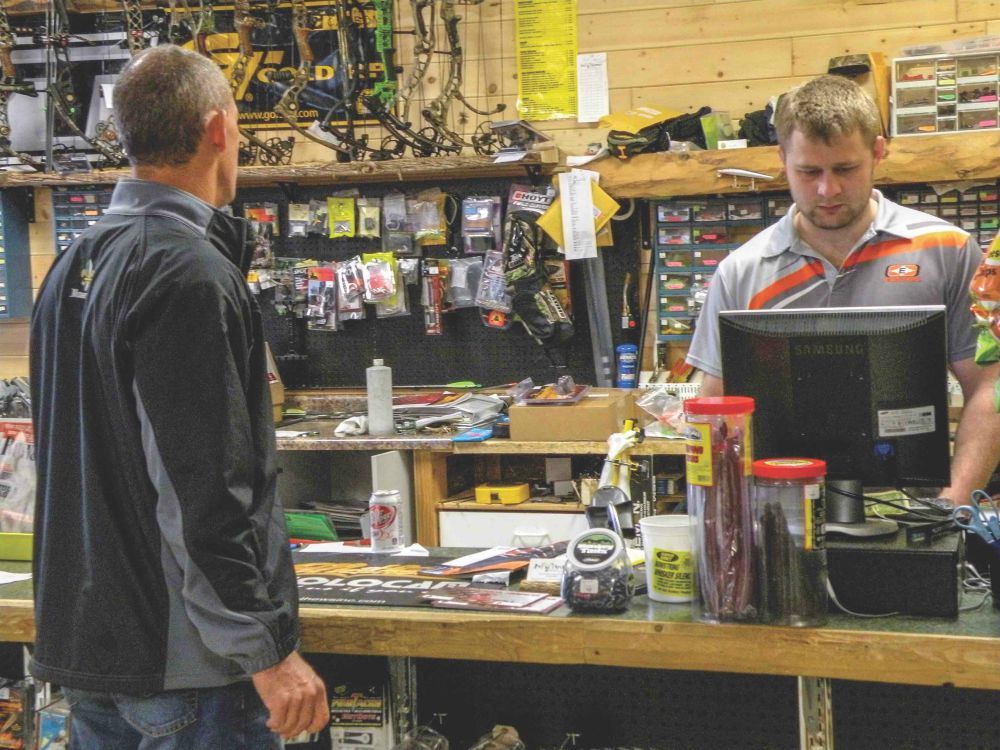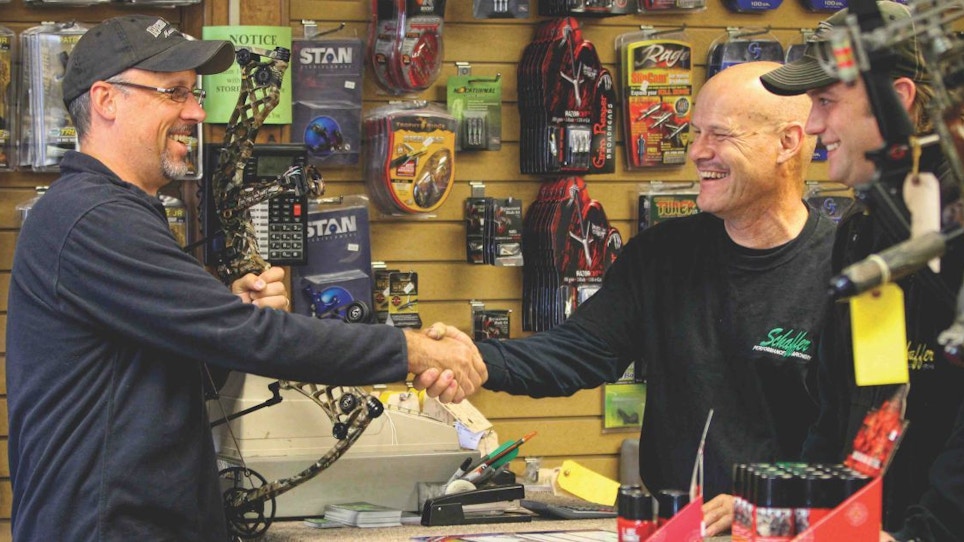It’s true that behind every successful retail business are loyal customers. It’s equally true that a long-standing, successful retail business is run by hardworking, genuine owners, managers and employees. So, I pose this question: Does that statement accurately describe you and the folks working behind your counter? Even more pointedly, does it describe those who are working your retail floor?
If you can’t respond with a resounding “Yes!” then some details that have been swept under the rug for too long must be addressed before your business suffers.
Here are 10 important attributes that should reflect the overall demeanor and behavior of all salespeople under your retail roof. Let’s review.
1. If You’re Having a Bad Day, Don’t Let It Show
I regularly visit and call archery shops as part of my Behind the Counter column duties, and I’m constantly taken back with the unfriendly behavior of some archery-shop owners and managers. Sure, there are lots of good eggs, but some have no phone or people skills, and that is a good way to appear arrogant or uncaring.
It’s as easy as this: Be friendly. I don’t care if you’ve had a bad day, week, month or year; let it show and customers will take it personal. That’s a chance you can’t take. Never let circumstances depict how you address and interact with your customers.
2. Build Relationships
Most customers like to connect with a salesperson, the goal being to develop trust before buying. As a salesperson, you also should desire to connect and develop relationships. That’s a noble attribute every salesperson should strive for, and it’s a surefire way to win your customers’ trust.
Now, business relationships are important, but connecting on a personal level is wise, too, yet sometimes difficult. You see, some folks just aren’t into talking, especially in our social-media-driven world. Don’t get too personal too quick with these folks. They’ll usually break over time.
Think baby steps. Start with general, non-personal questions that encourage engagement on their part. As they begin to open up and talk more, gradually introduce questions that encourage a personal connection.
What’s the sense in all of this relationship stuff? It shows that you’re concerned about more than money. It gives you the opportunity to win loyalty, and you’ll make some great friends in the process. Everybody wins.
3. Provide Solutions
Don’t take advantage of folks and sell them poor equipment just to move it off your shelves or perform mediocre service just to get folks out the door. This irresponsible activity will catch up with you.
Instead, be genuine and truly seek to help your customers and provide real solutions for their needs or dilemmas. If you cannot do that with every customer, be ready for an onslaught of bad reviews. Always use a consultative selling approach. Determine the customer’s needs, then provide solutions.

4. Respect Budgets
I don’t know about you, but anytime I shop for a big-ticket item — a vehicle, for example — and the salesman tries to sell me the most-expensive option, they instantly lose my respect. Are you trying to get into my pocket, or are you trying to help me?
Use this approach when selling a bow, cooler or scouting camera, and you’ll turn folks off, too. Most blue-collar folks have families to support, mortgages to pay, and vehicle and credit-card debt. You’re not helping them by tempting them with the most expensive bow on your shelf.
A better approach is to ask for your prospective customer’s budget up front. This tells them that you care deeply about building a relationship more than your business savings account. After that, do everything possible to sell that prospect the best-value product within and not over their budget. That goes for the final ticket, including tax. You’ll earn respect and build your customer base.
5. Animate Yourself
Rather than portray a boring, crusty or otherwise poor image, put some life into your voice and demeanor. Speak and carry yourself enthusiastically. This goes for answering the phone and addressing customers in person. I mean, who likes someone who appears arrogant or unfriendly?
When a customer walks through the door, I don’t care if you’re tied up with six other customers, you greet that customer, and do it enthusiastically. Make sure each customer is greeted with a friendly, genuine smile. Ignore one customer, and word could spread like wildfire. You can’t afford that reputation.
6. Be Knowledgeable
Archery salespeople, like those in any field, must study and know all things archery. If not, you’ll struggle to answer questions, which means people won’t trust that you know what you’re talking about and may take their business elsewhere.
The reason you’re in business is because not everyone can work on their own equipment, nor do most have the tools to do so. Further, they rely on your product expertise, and the reason they do is because you know (or should know) good products from poor products. Their dilemma is either that they need technical help or assistance with sifting through product to buy what works.
For that reason, it’s wise when training new employees to have them work behind the scenes to begin. Gradually work them onto the sales floor. First, have them accompany you during sales presentations, then lengthen the leash as they prove they know what they’re talking about. Salespeople that speak fluff are unprofessional.

7. Perform High-Quality Work
Unless your shop has separate technicians and salespeople — most don’t — salespeople must double as service technicians and provide high-quality work. I don’t care how expensive the bow is that you sold. If it’s not set up correctly, it’s not a topnotch rig, plus you’ve failed your customer. Strive to send only high-quality work out the door, and your stature as a salesperson will heighten.
8. Don’t Bash Competitors
Especially if it’s true, it’s easy to tell customers that competitor A or competitor B does poor work or sells inferior products. Plain and simple, it’s easy to think that bashing competitors will somehow increase your reputability. Trust me, it won’t. It will actually hurt it.
Inevitably, a pricing objection or similar matter will cause a customer to mention a competing shop. Rather than run competitors through the ringer, really use these opportunities to state why the customer should buy from you. In other words, what add-ons do you offer at no extra charge? Also assure and reassure that you stand behind the products you sell, and that you offer top-tier customer service. Speak positive things about what you offer rather than negative things about your competition.
Bashing competitors will eventually hurt rather than help your reputation. Customers will perceive your comments as arrogant or conceited. If you want to have a long-standing, successful shop, you must watch your mouth and avoid negative comments aimed toward your competitors. Take the high road.
9. Don’t Pretend to Know Answers
It may feel awkward, but one day (if it hasn’t happened already) a customer will ask a question that stumps you. The natural human response is to provide an answer — any answer — so that you don’t look dumb or uneducated. However, this is deceitful.
Rather than pull an answer out of thin air, instruct the customer that you’re unsure of the answer, but that you will look into it and find an answer. They’ll respect that you didn’t lie to them.
Often, finding an answer is as simple as making a phone call. Or, it could be as easy as jumping on a website or thumbing through a catalog. Whatever the case, do your part to find the correct answer rather than the easy one.
10. Follow Up After Sales With a Thank-You Note or Phone Call
It’s easy for customers to think that you forget them when they walk out the door with a new bow or crossbow. I mean, you deal with tons of customers daily, so why would they stand out in your mind?
This is your chance to prove them wrong. Always attempt to gather contact info from all customers who make purchases, including their e-mail addresses. Then, maybe a week after they make the purchase, thank them for their business and reassure them that you’re available for any assistance they may need with the product(s) they purchased. Also state that you look forward to working with them again in the future.
A simple follow-up goes a long way toward creating loyalty and repeat business. And it costs little to nothing. It’s a free e-mail or phone call, or a stamp and envelope. It’s effort well spent toward promoting loyalty.

Success in Reach
Being a salesperson is a tough gig. You’ll always deal with tire kickers. You’ll face objections. You’ll even have customers that you cannot please even if you bend over backward. You might even have customers who accuse you of doing something you didn’t do.
However, your attitude and demeanor can make sales a rewarding job or an is-it-closing-time-yet job. Which will you choose? Follow these 10 tips, and you’ll excel on the retail floor and love your job.






